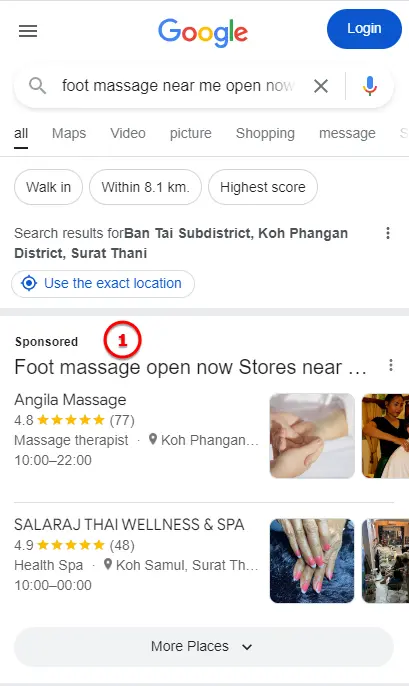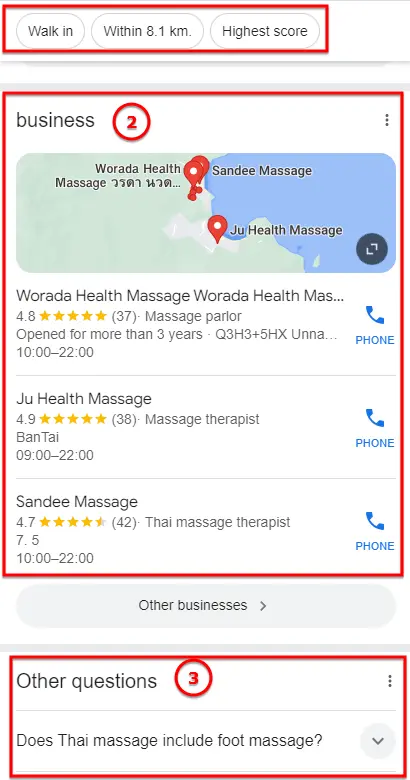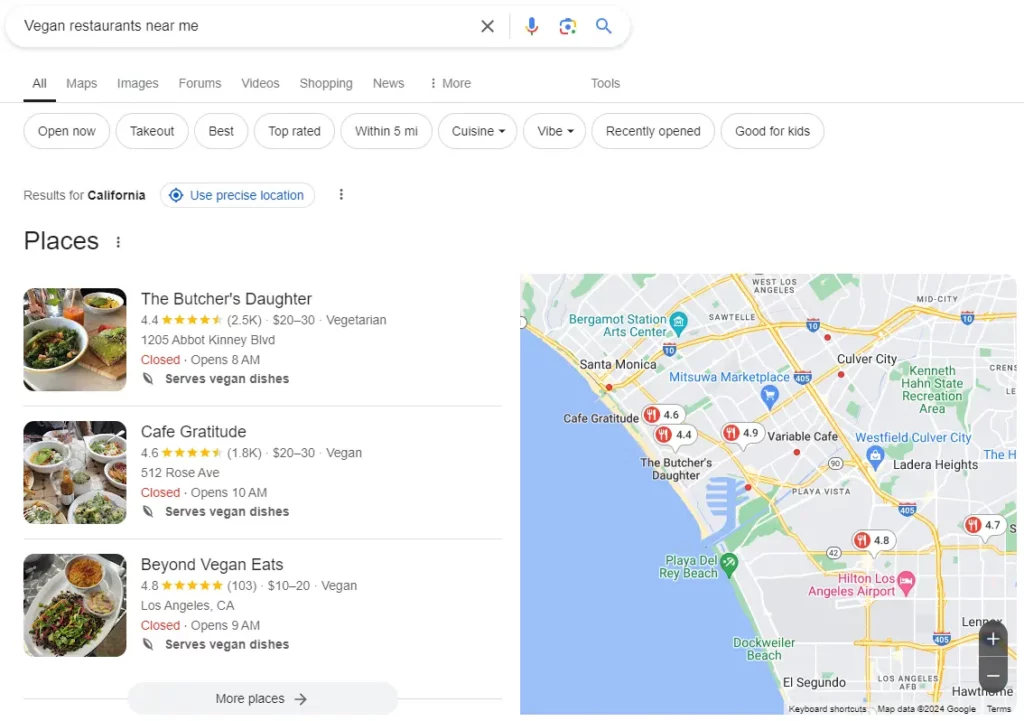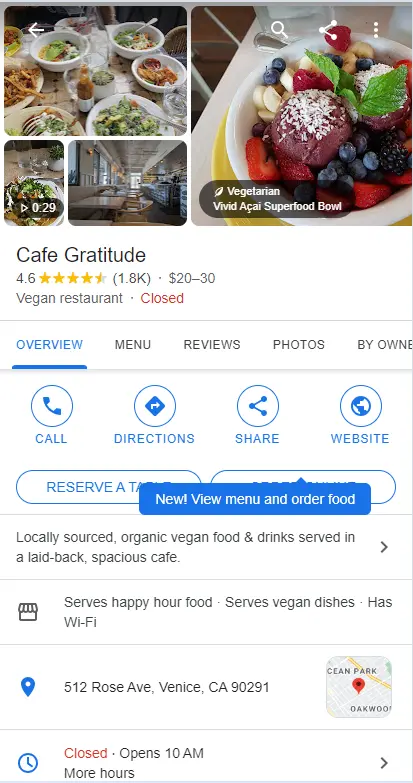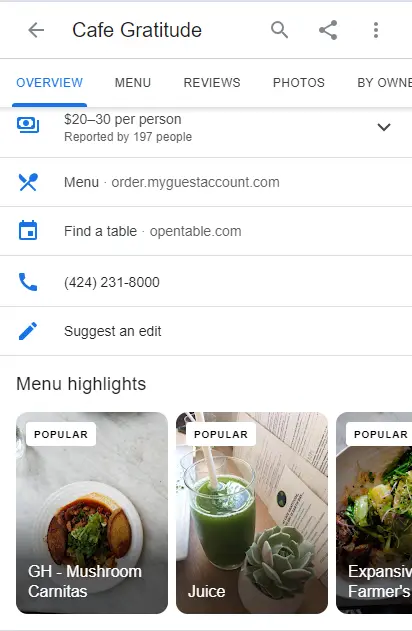Game-Changing Local SEO Tips Every Small Business Needs to Know!
If you have a physical business, you are most likely familiar with the challenge of gaining visibility in local searches and reaching potential customers at the exact moment when they need your services the most. This is where local SEO comes in handy. In this article, we will review in detail the various aspects of local SEO strategies, while focusing on the importance of local SEO for small businesses.
Even if you have an outstanding website, offering top-notch services, if it isn’t triggered for the right queries in the right location, it can be incredibly difficult to gain the level of visibility that can boost your brand’s awareness and establish a strong local presence.
Regardless of the size of your business, it is extremely important to create and maintain a correct, up-to-date local SEO strategy to make certain that your website is well-optimized, using a location-targeted approach that ensures you connect with your target audience in the most accurate point of their buying journey.
With the increasing popularity of “near me” queries in the past years, the importance of ranking for local searches has become clearer than ever, with businesses struggling to gain presence in the Google Local Pack (often referred to as “the 3 pack”) and Google Maps.
Let’s understand what exactly is Local SEO, why local SEO is important for small businesses, and what are some proven local search marketing tips that you can incorporate into your marketing strategy to boost your visibility for local search results.
What is Local SEO and why is it important?
Local SEO is a location-targeted strategy that aims to optimize a website to appear in local queries related to the provided service. To cut through the jargon, Local search optimization involves a comprehensive effort to optimize both the brand’s digital and physical assets.
Some examples of an all-encompassing local SEO strategy include the optimization of the business’s website, Google Business Profile, and online directories for location-specific keywords, along with managing online reviews & reputation and building local citations.
Local SEO for small business
Local SEO carries a crucial importance, especially for small businesses. According to Google, over the past two years there has been an over 500% increase in mobile searches for “near me”, combined with “can I buy” or “to buy”. These numbers reflect an increased expectation for quick, relevant, and location-specific search results.
For a small business with a limited marketing budget, local search optimization provides an affordable approach to reach its targeted audience and build prominent brand awareness, driving higher local traffic to its website and physical location.
For local searches, in many cases, the first results a user sees in the SERP (search results page) are the Google Local Pack and the Google Map. In fact, look at the next screenshot, taken from a mobile search for “Foot massage near me open now. Look how many results the user sees and how much scrolling it takes before reaching a “classic” organic result. It starts with (1) sponsored results, continues with (2) Google Local Pack, goes through (3) people also ask, and then and only then will the user see a classic result linking to a website. You can also see the filters suggested by Google on the top, suggesting the user to look at the results filtered by distances / ratings, etc.
One thing is clear. If you are a small business owner, you most certainly must invest in a great local SEO strategy that will push your business higher in the SERP.
So, let’s dive in and learn how local site optimization for a small business works, and what are the most important local SEO ranking factors.
What are the Local SEO ranking factors?
Google has stated 3 main factors are considered when ranking a local business:
- Relevance – is your business relevant to the user’s needs, as expressed in the query?
- Distance – is your business located close to the area the user is searching from?
- Prominence – Is your business active, well-known, and popular?
Combining all 3 is what will determine a business’s ranking in local searches. A business that Google considers more relevant to the query, or has better reviews, might get a higher rank even if it is located farther away from your location. So how do we make sure our small business’s online presence is optimized for all 3 components?
Classic SERP ranking factors
The SERP (search result page) is Google’s way of presenting the required information, triggered by a specific query. The world of SEO is wide and complex, but aside from learning in-depth information about general Google SEO ranking factors, there are some things that are relevant specifically to the local SEO world.
Localized content
One of the most important on-page practices for Local SEO is creating quality local content, for example: local industry news that can be relevant to a geographical point of interest, hence attracting a local audience.
If you are a business providing solutions to a local issue or meeting a local need, try addressing problems that might be unique to your location;
embedding a map to your content can not only help the reader get a grip of your physical location but also signal the search engine your local relevancy.
A good example can be a locksmith – Let’s say you want to rank for longtails and queries like “Recommended locksmith in _______”. You can provide information on the security data of residents of the area, including statistics on the number of burglaries, etc. This way you keep your site up to date with content that is being updated regularly, and establish yourself as a local authority in the field.
Local Keywords
A thorough keyword research is indispensable for a successful local SEO strategy. Targeting location-based keywords and incorporating them strategically throughout different parts of the website, would help the algorithm understand the context of the service you are offering, to the location you are targeting.
If you offer your services in more than one location, make sure to provide local service area pages (SAPs). A well-optimized service area page can improve search engine rankings, provided it is specifically tailored to the relevant location. Remember that your keyword research results can be diverse from one location to another, due to different slang, tone of voice, etc.
Service area pages are a fantastic addition to your local SEO strategy, complementing your overall website SEO. They should mirror the user experience, menu structure, and CTAs of your main site, while also offering original, engaging localized content.
Be sure to include the localized keywords in your metadata, add links to your business listings on other sites and directories for that area, as well as customer reviews specific to that location, using anchors that describe your service location. Incorporate geo-optimized images and visuals to enhance the local relevance of each page.
Mobile Usability
Another crucial ranking factor for both general and local search engine optimization is mobile usability. Every website should be mobile-friendly, and mobile-first optimized. In Local SEO, considering over 60% of local searches being made from mobile phones, this can be a game changer. Providing a mobile-friendly website with great user experience, fast loading times and intuitive navigation will reflect positively on the site’s ranking.
Remember, your target audience will likely be searching for a business near them from their mobile phones, and if your website is not mobile friendly, not only will it probably struggle to rank in good positions, it can drive a frustrating experience for the users who do get to it, making them search for another, more mobile-optimized website.
Local Backlinks
We all know backlinks are a ranking factor of top importance. When it comes to local SEO practices for small businesses, it is even more important, because local businesses recommending one another signal the algorithm and the users that this is indeed a trustworthy business. Local backlinks can increase your trustworthiness and contribute to your overall reputation and EEAT.
Here are some ways to score quality local backlinks:
- Team up with local organizations (because who doesn’t love a good partnership?)
- Sponsor a charity or other events in return for an online mention (hey, it’s for a good cause and a good link!)
- Identify nearby businesses from different industries that you can collaborate with by exchanging links (no competition here, just good vibes and backlinks!).
Social Signals
Take advantage of your social media presence to boost your local presence. This strategy can combine paid campaigns based on geographic location, with organic social media activity in local communities, responding to relevant threads in groups of interest, etc. Google considers content shared on social media, and generally, signals coming from social media, more important than ever before. Make sure you maintain a local business page on your social platforms, and share your Google My Business profile on those social assets.
Google Local Pack / Google Map Pack Ranking Factors
Google local pack, also known as Google map pack, is the top result appearing on the SERP when a local-intent query is made. This result is far more visually appealing than the classic version, making it highly attractive to small business owners.
The first 3 results in the Google Local Pack are accompanied by a map showing their exact location & provide the business’s address, opening hours, average rating, and a button allowing mobile users to call the business directly from the SERP.
A key part of a small business’s local SEO strategy is optimizing various elements to boost its ranking in the Google map pack. Let’s go over these local ranking factors, that can make or break a small business’s online presence.
Google Business Profile
Google Business Profile is a platform allowing business owners to share accurate information about their business, including address (please note you will be required to verify the physical address you want to register for your profile), phone number, contact information, reviews, link to the website and relevant directories, recent news and updates, photos, and more. This is a way to communicate with your potential customers and share the most accurate information in real-time, for those seeking to visit your business (e.g. – a change in opening hours, special events, etc.).
A correct set-up and an ongoing optimization of your Google Business profile (previously known as Google My Business) is crucial for your business appearance in local search results. This is because only 3 Google Business listings are displayed organically at the top of the SERP as part of the Google Local Pack (also known as “The 3 Pack”).
To view other listings, the user will need to click on the “more businesses’ button, and adding another required action, is, as we know, a proven tactic to decrease CVR (conversion rate).
Here are our tips for the optimization of a small business’s Google business profile:
- Make sure you fill out all the sections of the profile. The more complete, detailed, and accurate your profile is, the better the algorithm can match it with relevant queries.
- Double-check all your information regularly. Always make sure your contact details and business hours are correct and consistent across all platforms. This helps establish trust with both Google and your potential customers.
- Choose the correct categories for your business. A choice of relevant primary and secondary categories will help the search engine get a grip on what your business offers and boost your visibility in related searches.
- Invest in High-Quality visual content. Also encourage your customers to upload their own photos, making your business reliable and authentic.
- Always respond to reviews, positive and negative. This is a great way to engage with existing and future customers. Be proactive, and ask satisfied customers to rate and review your business.
- Make sure you keep your audience engaged – post regular updates, information about events, special offers, industry-related news, etc., to keep your Google Business Profile fresh.
- Use strategic keywords (remember the keyword research you already conducted?) and incorporate them, naturally but strategically into your business posts & business description.
A Word About Reviews
Reviews might be one of the most important ranking factors when it comes to local SEO for small businesses. The more reviews your business receives, considering most of them are positive, the more people will trust your business. It is important to state that, in many cases, a business with a lower rating can rank higher than another business with a higher rating, if it has many more reviews overall.
So, some rules of thumb when it comes to reviews:
- Reviews should be authentic, so please avoid paying for reviews or using bots, as this is a violation of Google’s policies and will get your Google business profile penalized.
- Google seems to favor businesses that actively respond to reviews, as it signals freshness and engagement. Encourage your customers to rate and review your business, and make sure to always respond to reviews, positive and negative.
- You can share positive reviews on your website and social media to reach a broader audience and boost your brand reputation even more.
Local citations / NAP
Local citations are a major part of local search marketing. Local citations are online mentions of your business NAP (name, address, phone numbers) in local business directories, social media, etc. For example, Google Business Profile is such a directory, offered by Google, but there are many online directories, relevant to specific industries, business types, and more.
The important thing is to make sure your citations are consistent across the web. If Google can’t verify the accuracy of your business information, it might choose not to display your business in search results at all.
Let’s wrap it up
We can agree that SEO for small businesses must include a wise, well-thought-out local marketing strategy. Local search optimization of a small business is a wonderful, budget-considerate way to increase the local online presence of your business, build brand awareness, and engage with potential customers at the most accurate point of their user journey.
Local SEO for a small business should be comprehensive, covering all aspects of local marketing: Website optimization, Google business profile maintenance, local citation creation, and more. If you need further help with the creation and implementation of such a strategy, contact our specialists in yellowHEAD, and we will be happy to assist!





